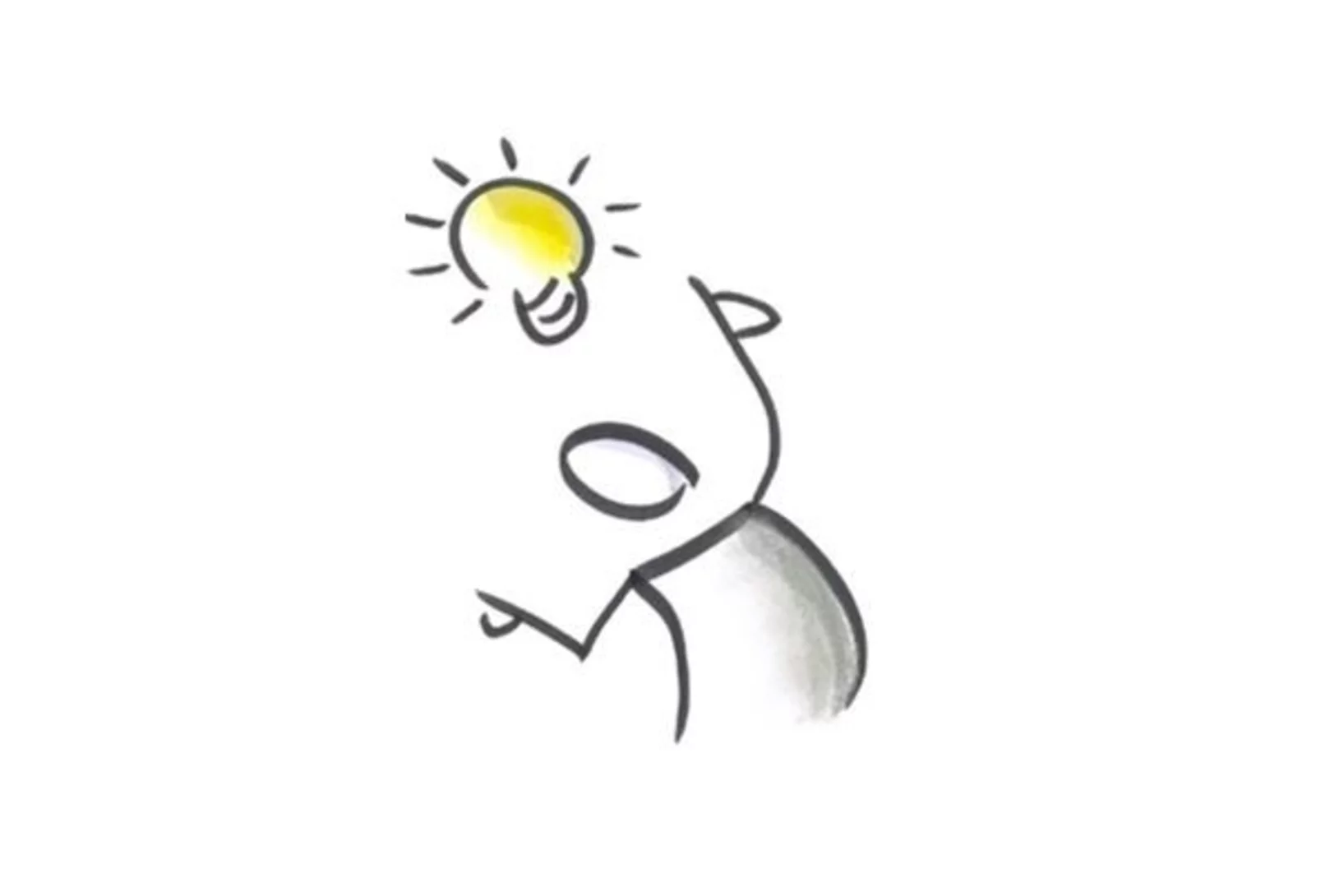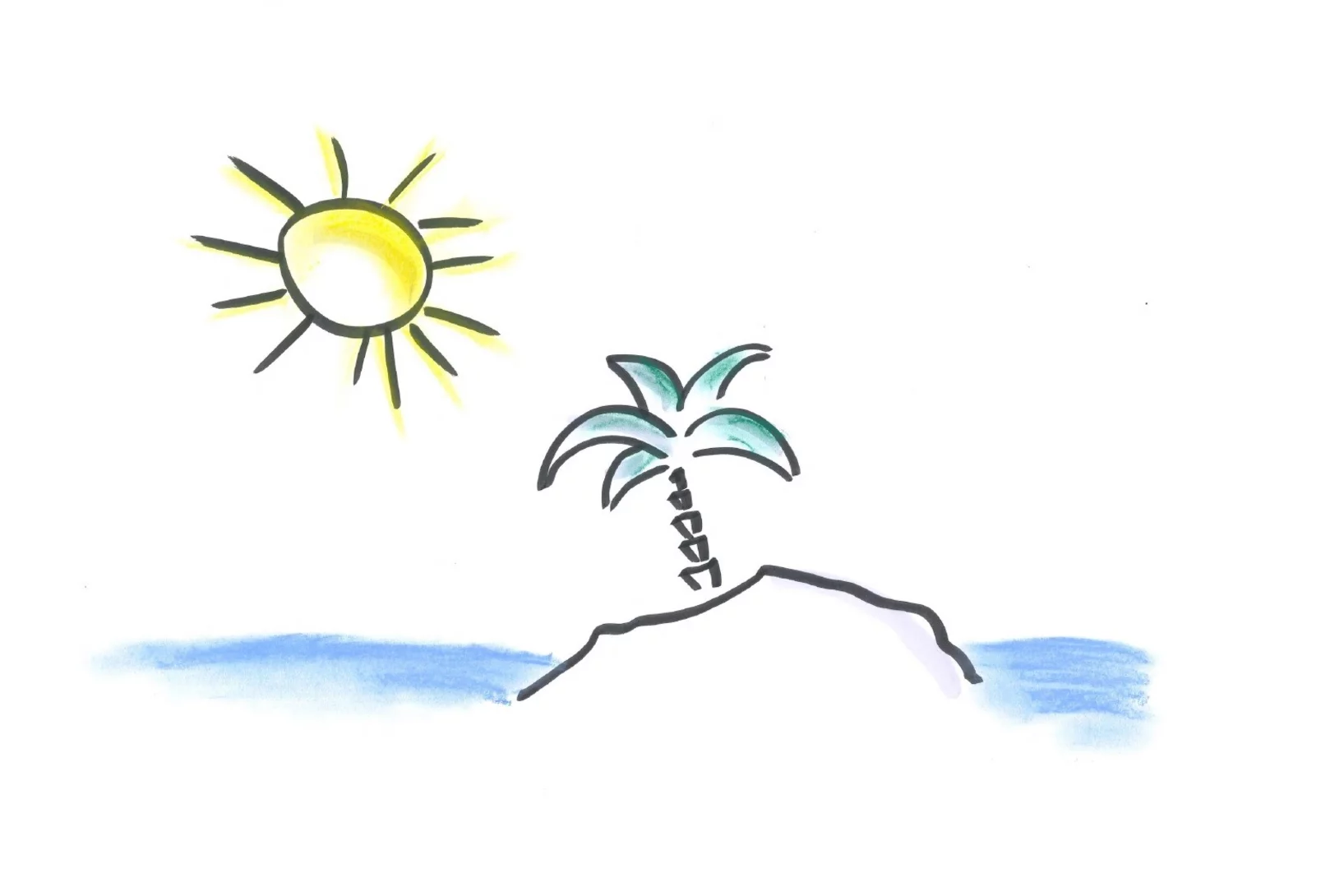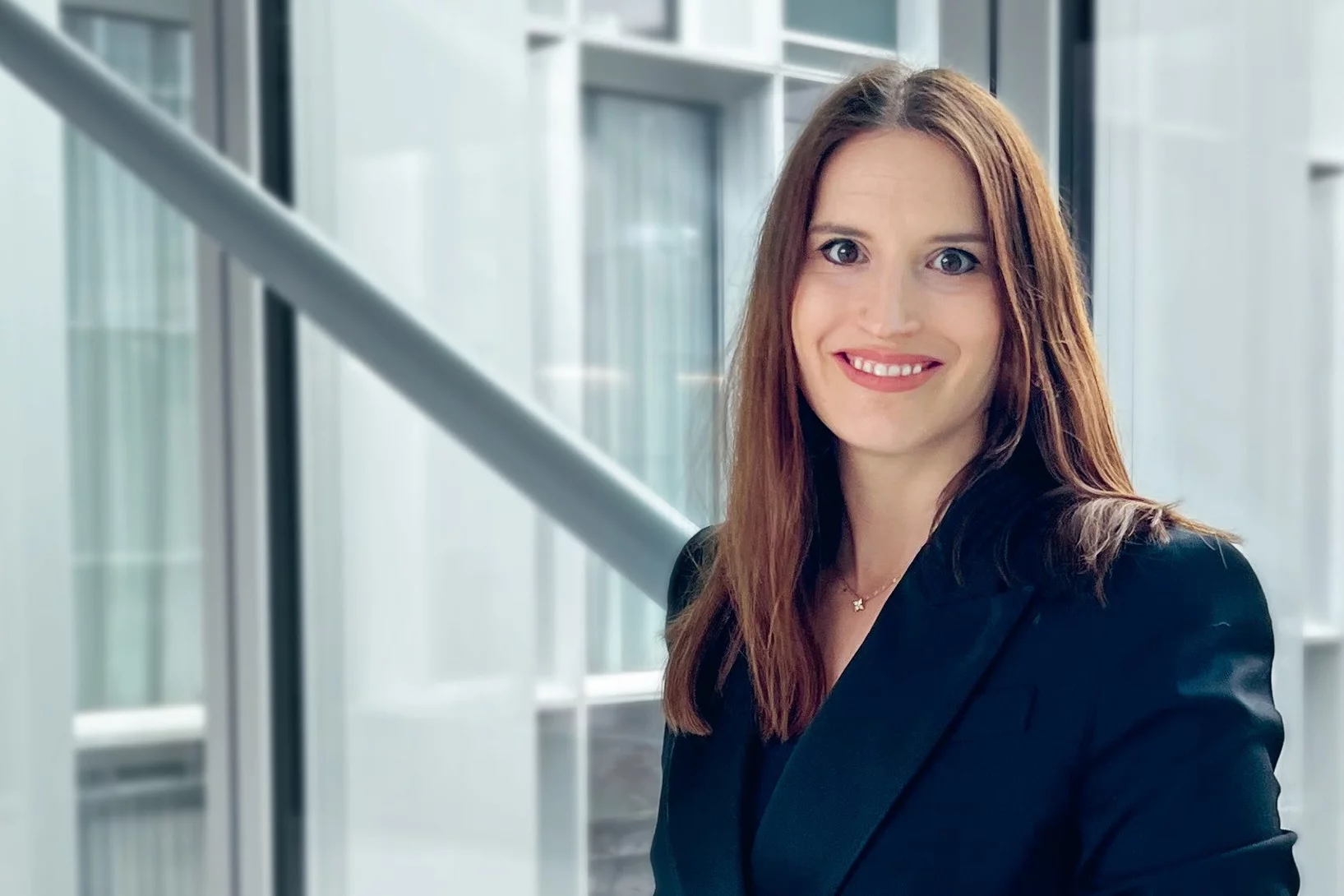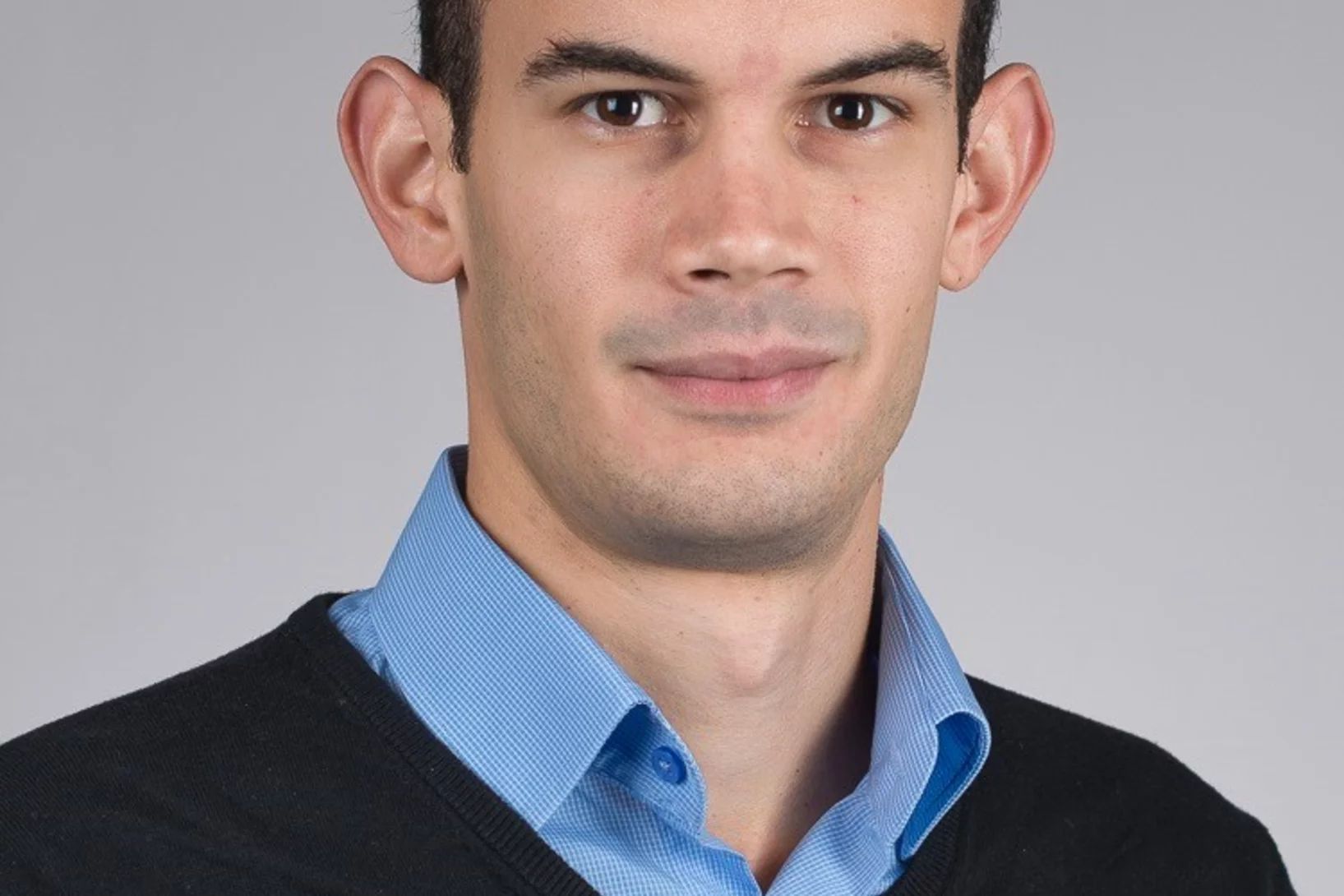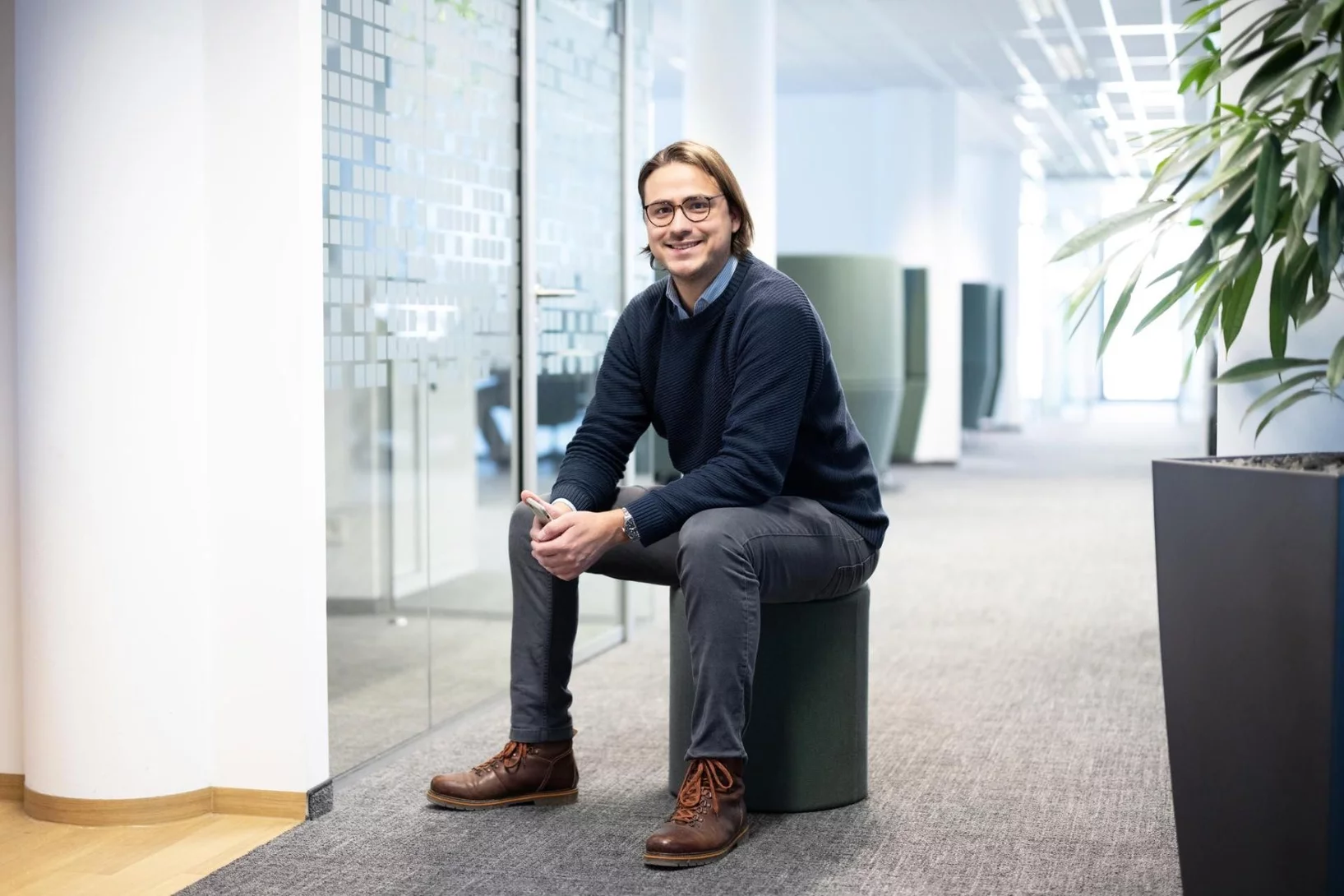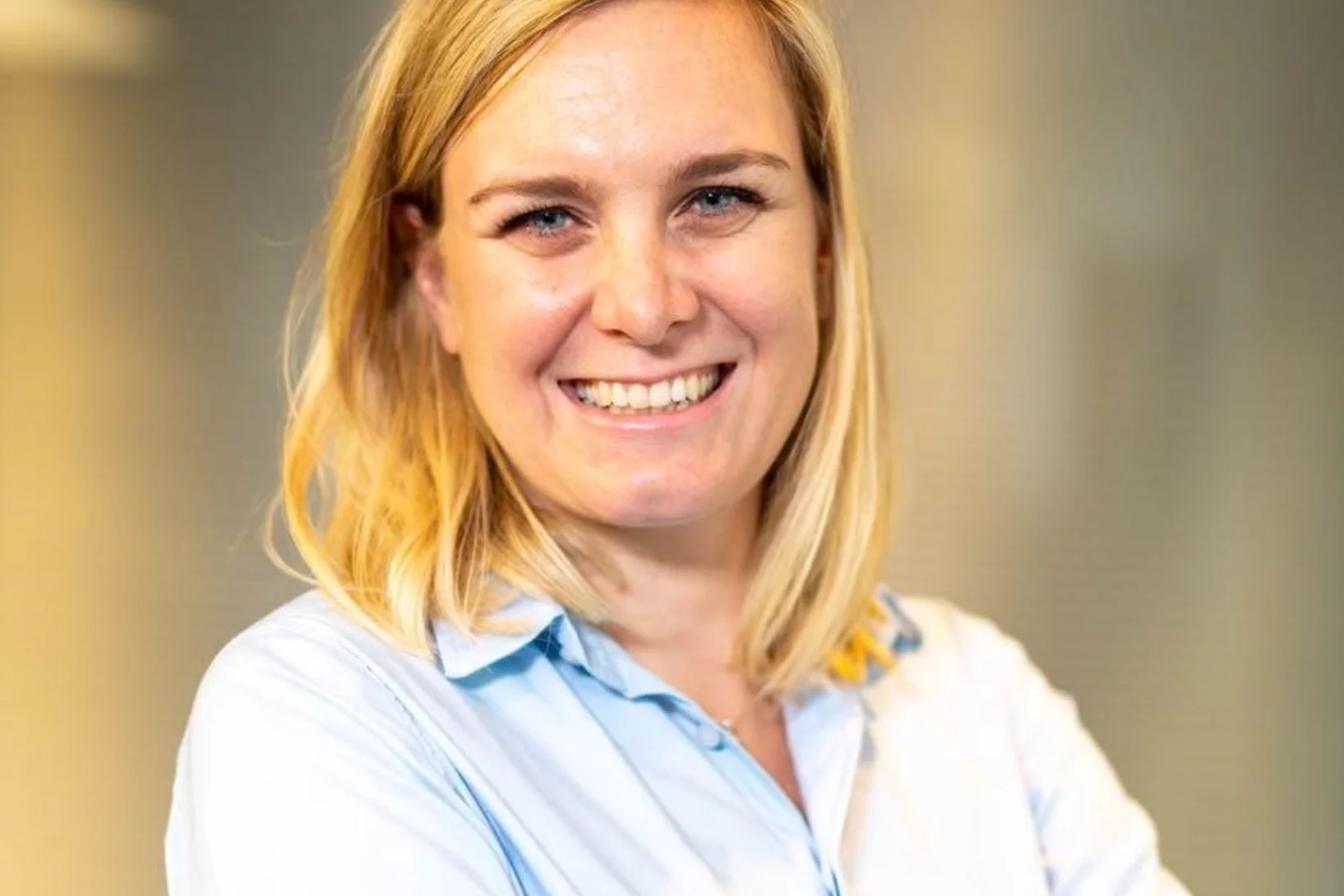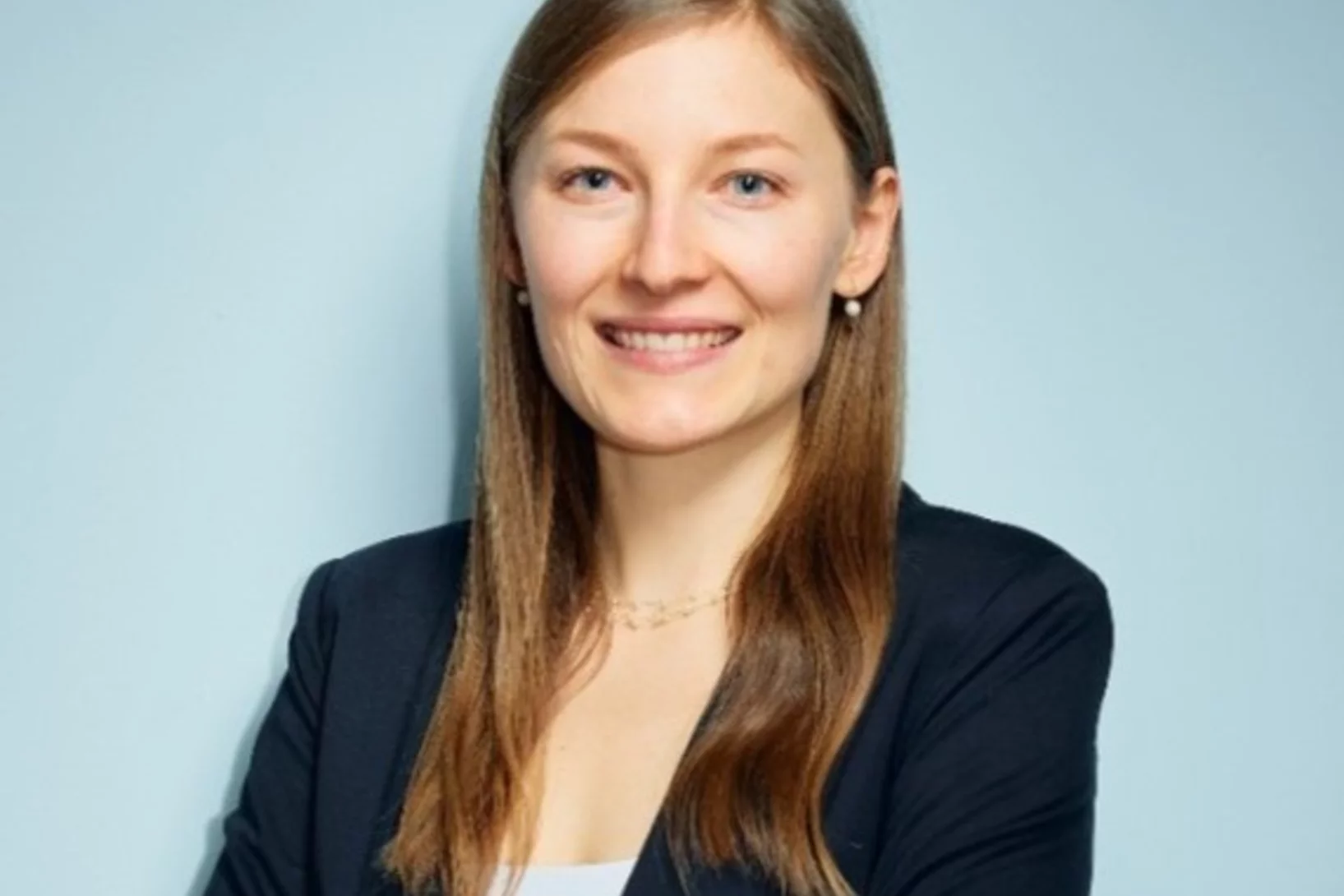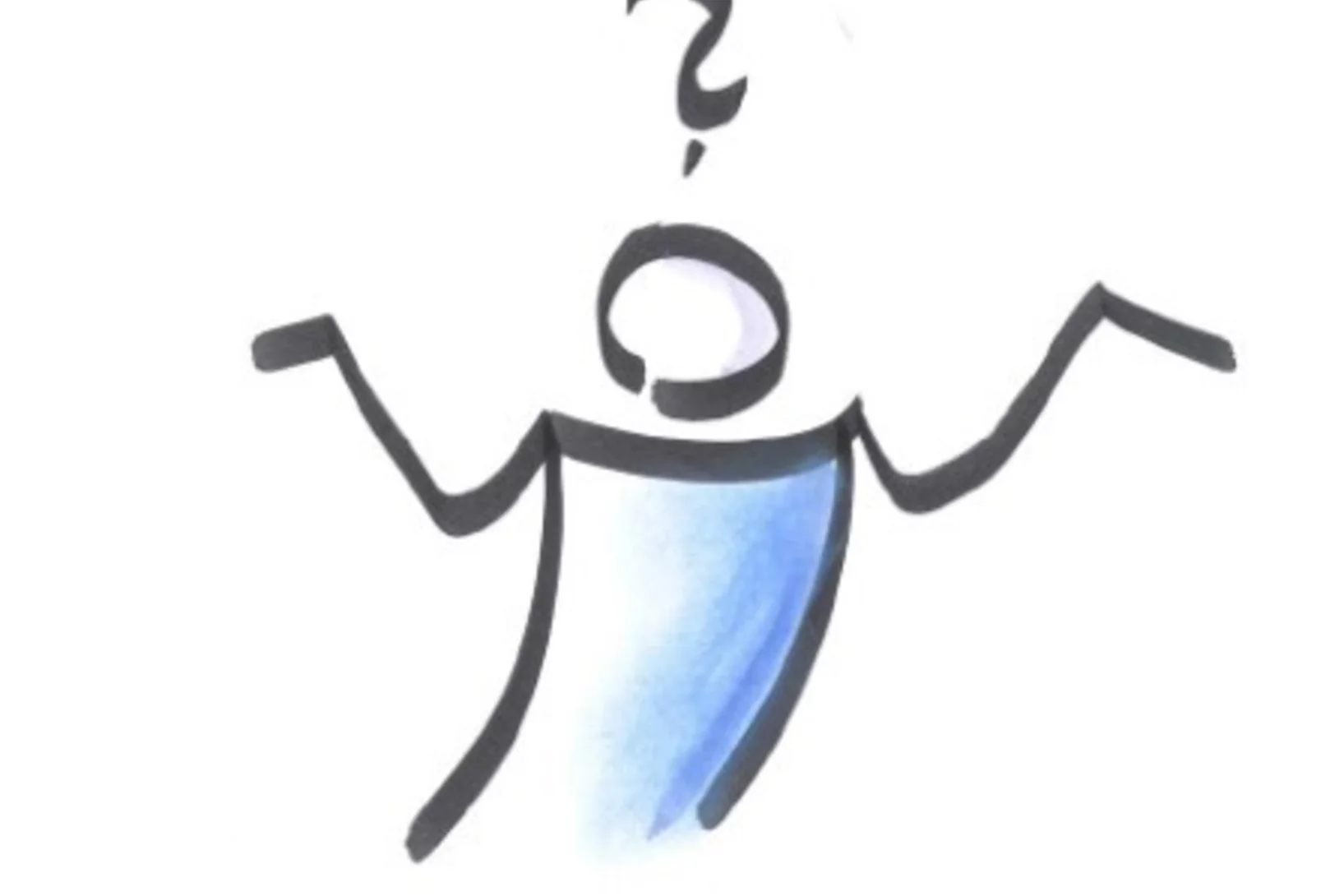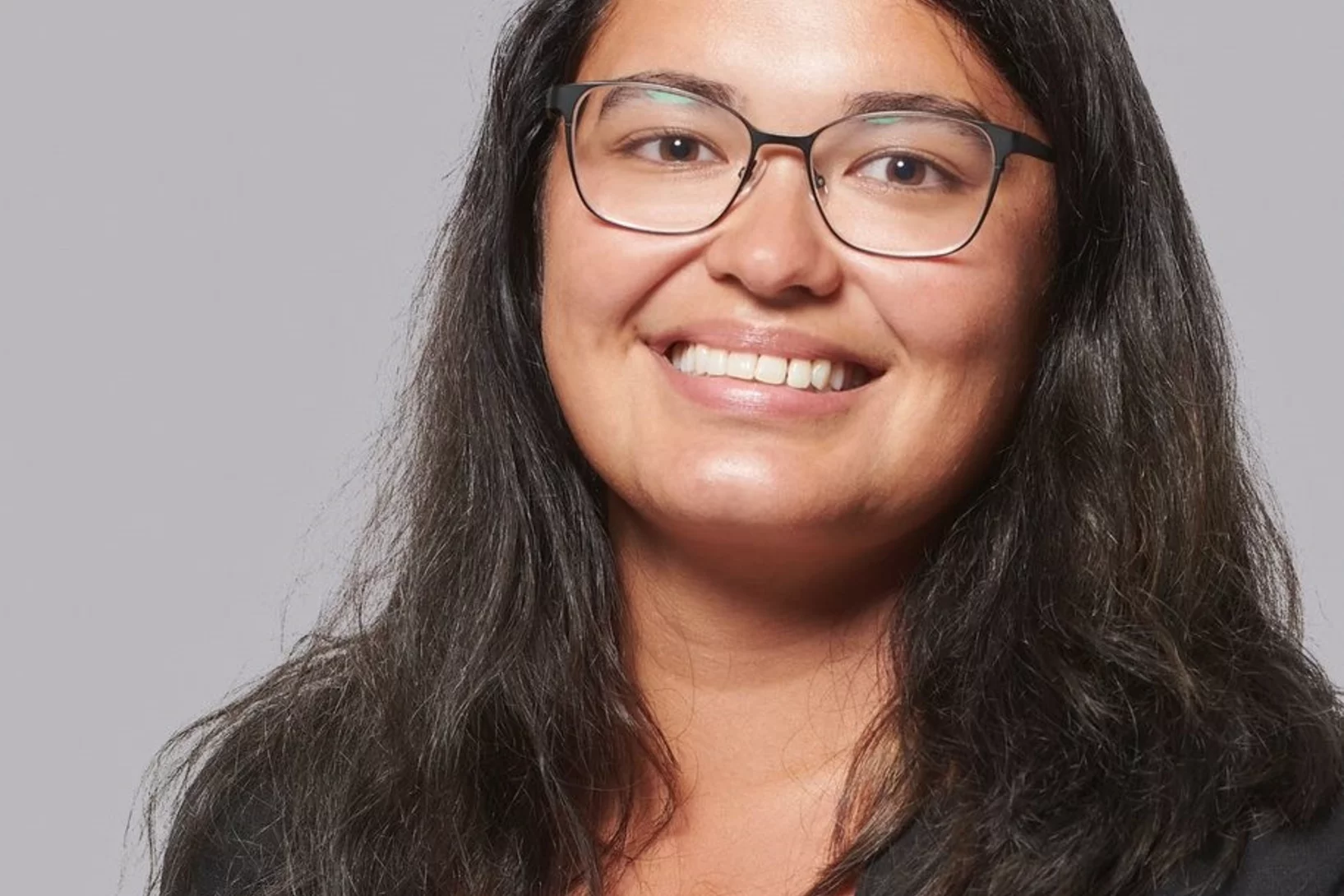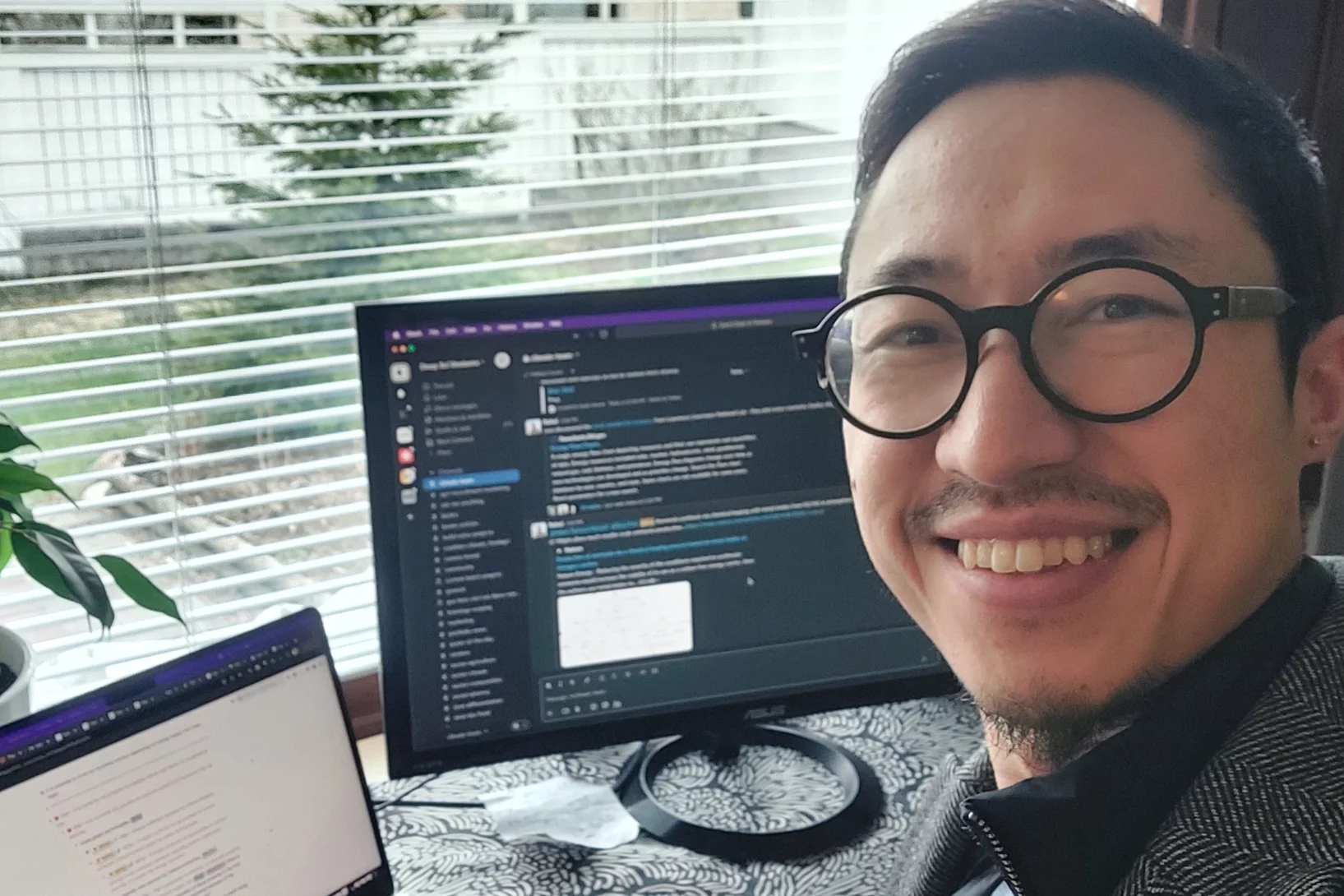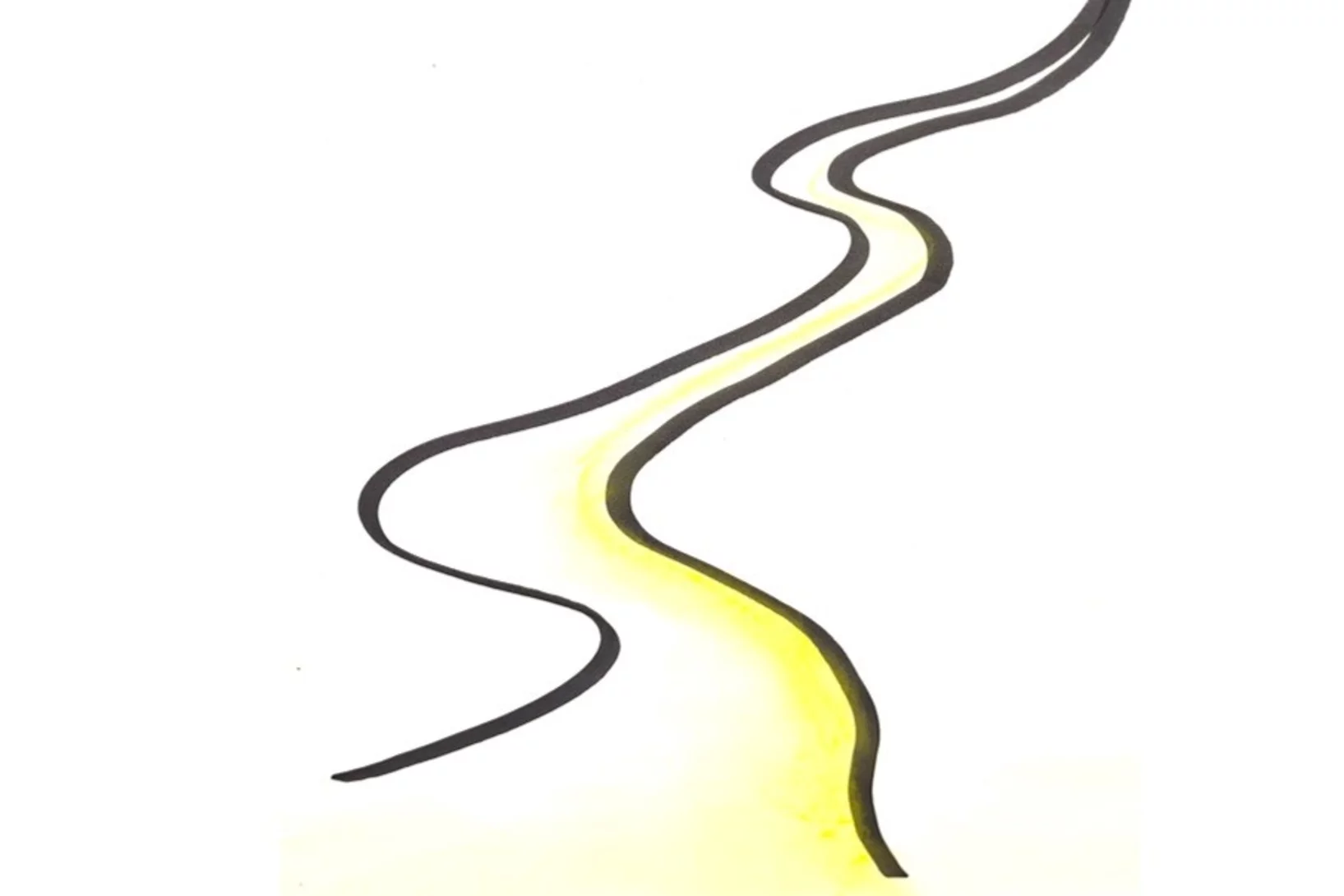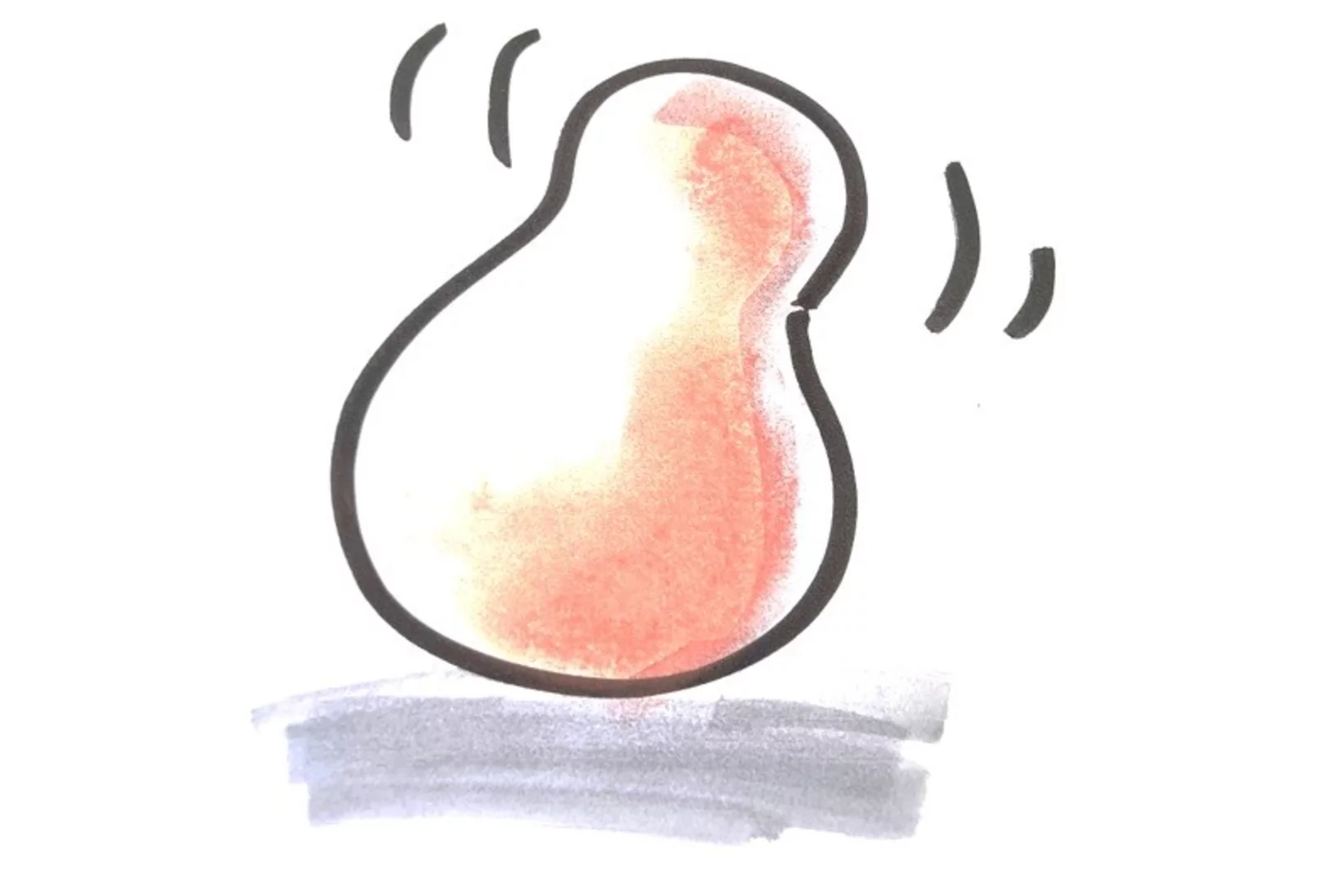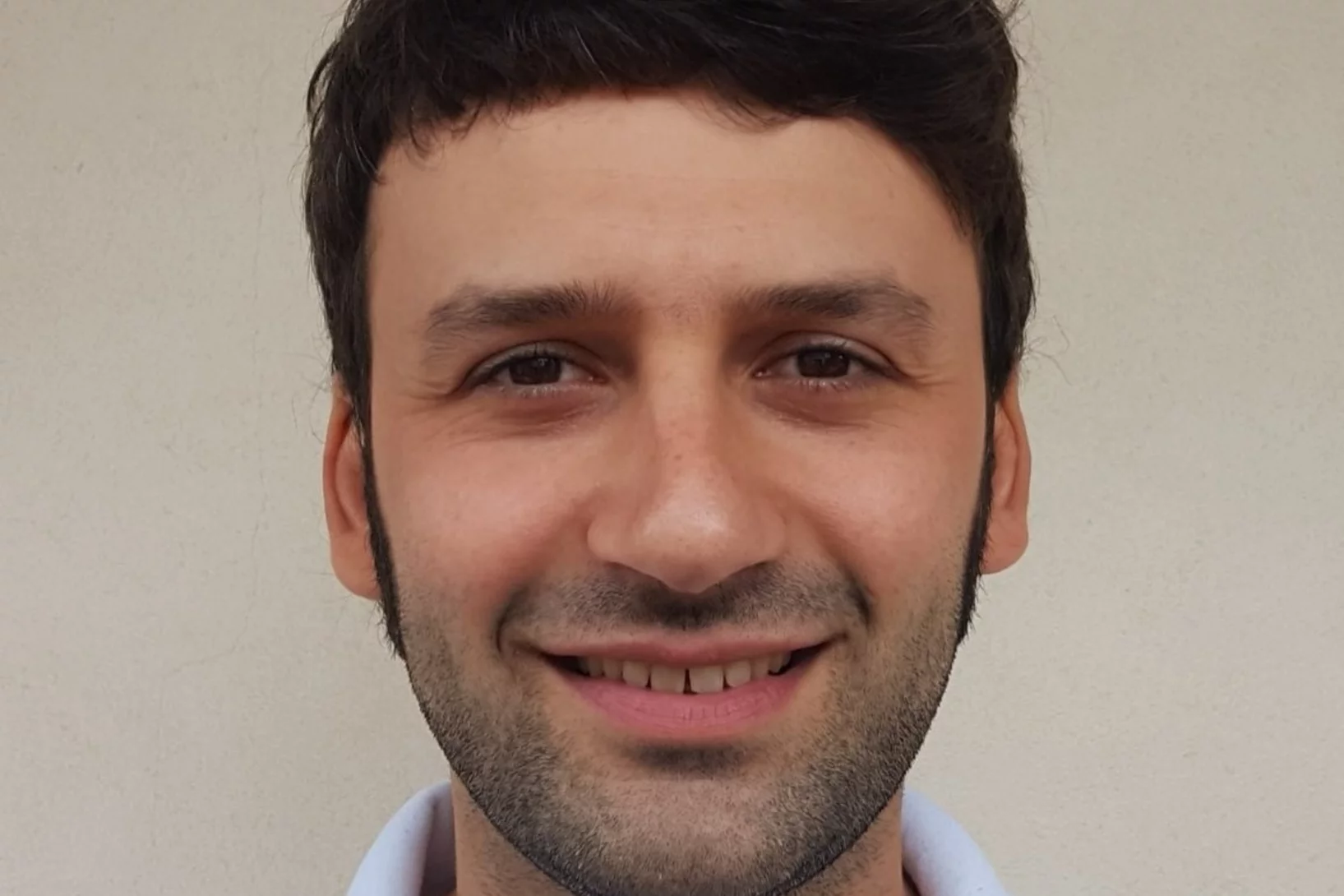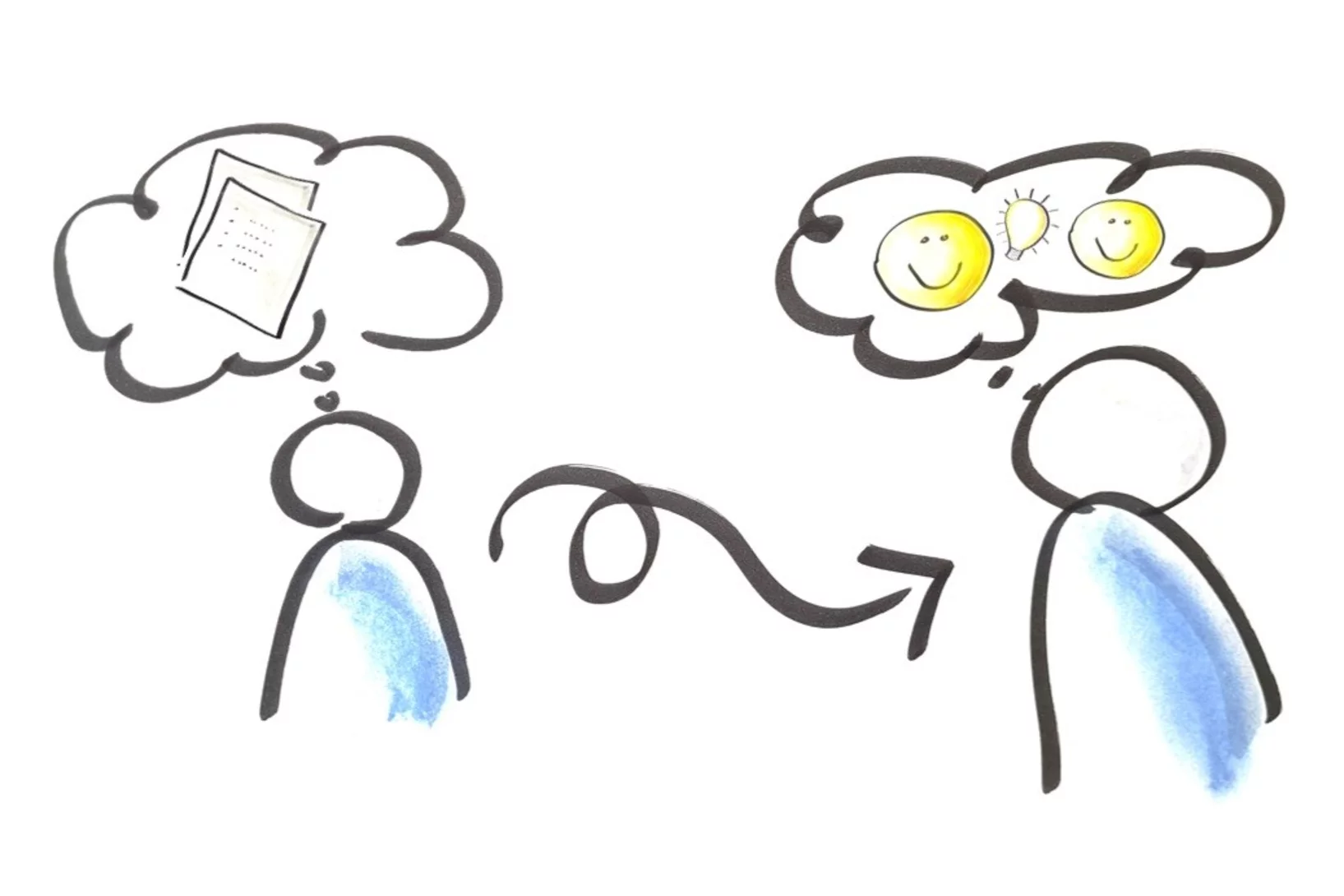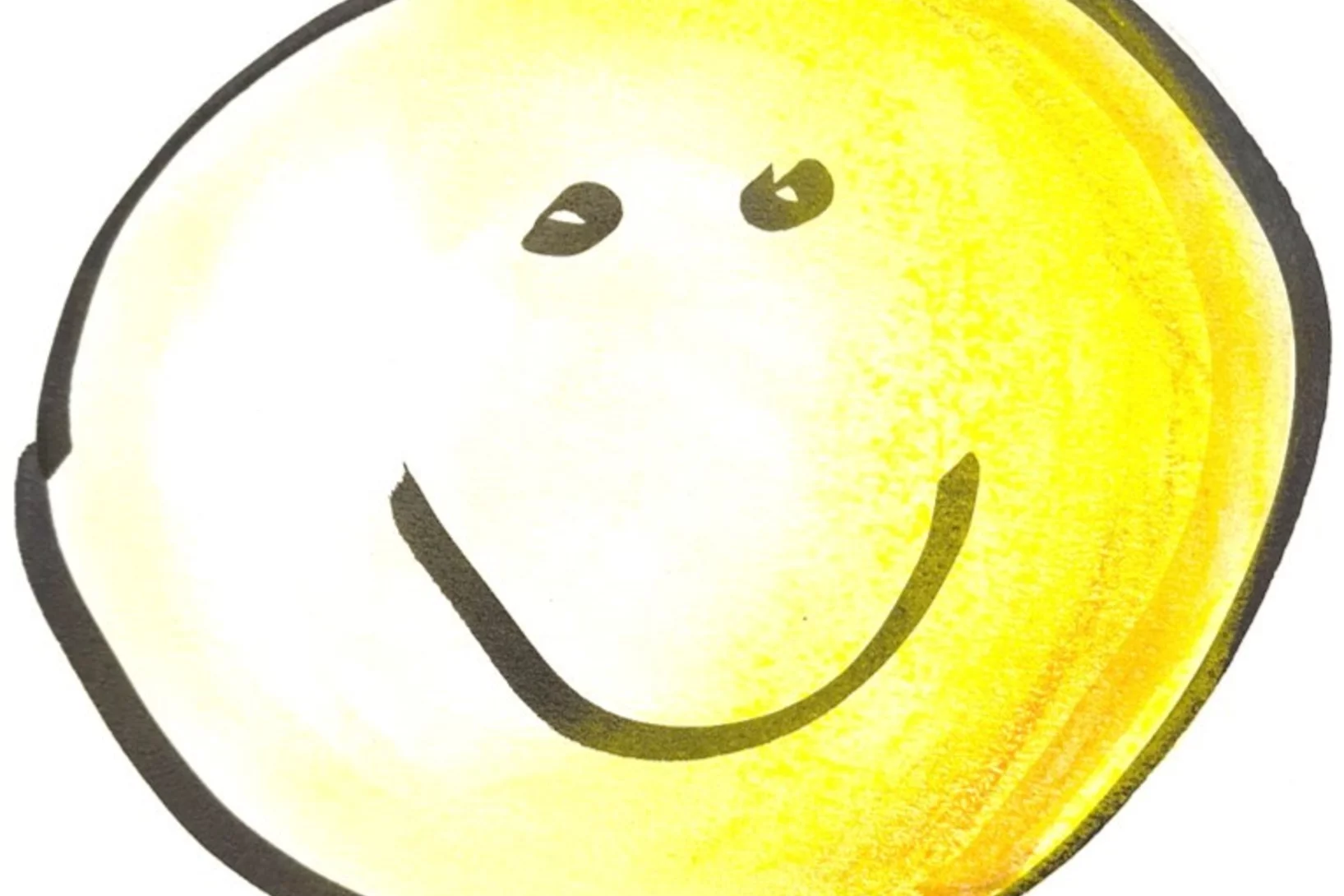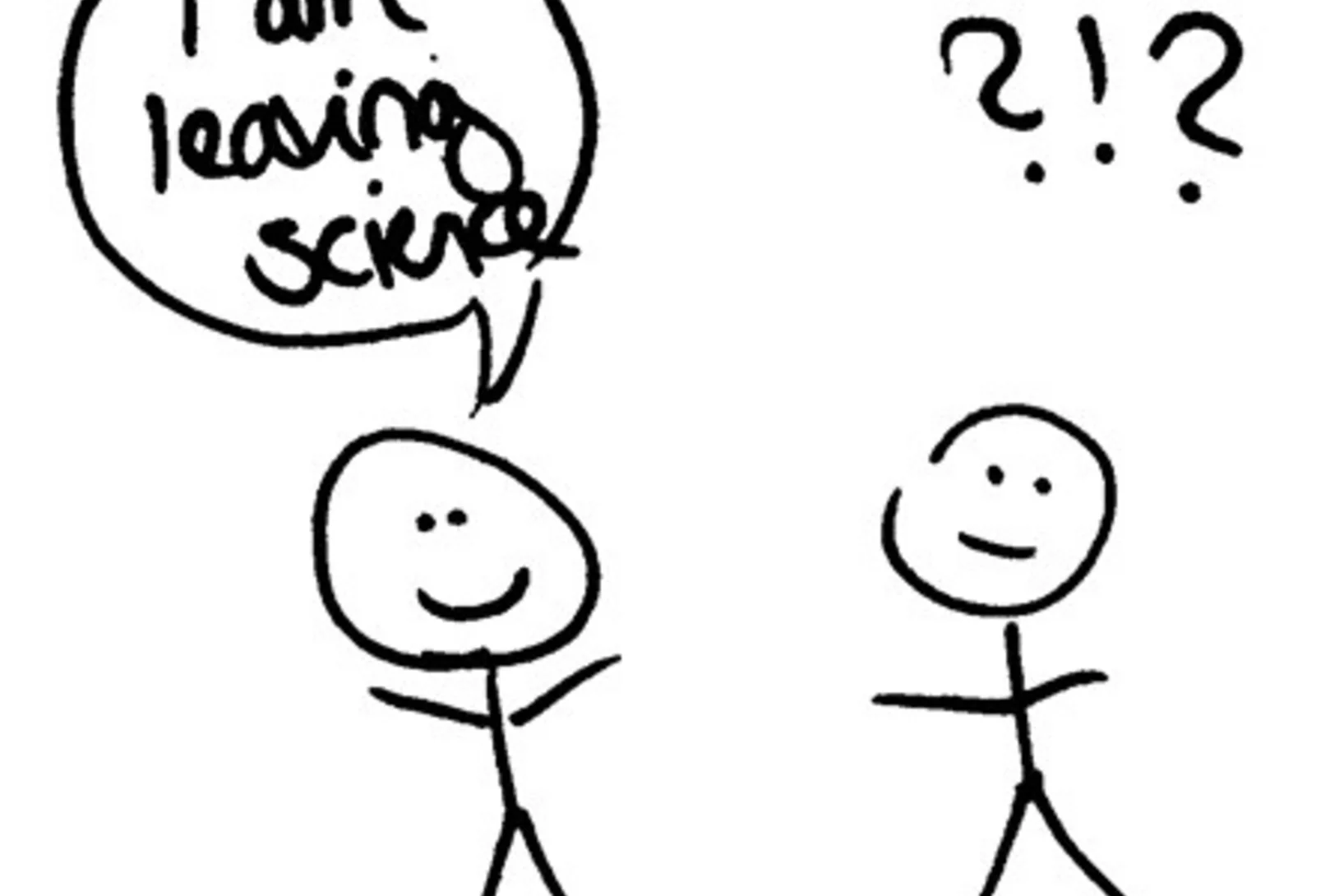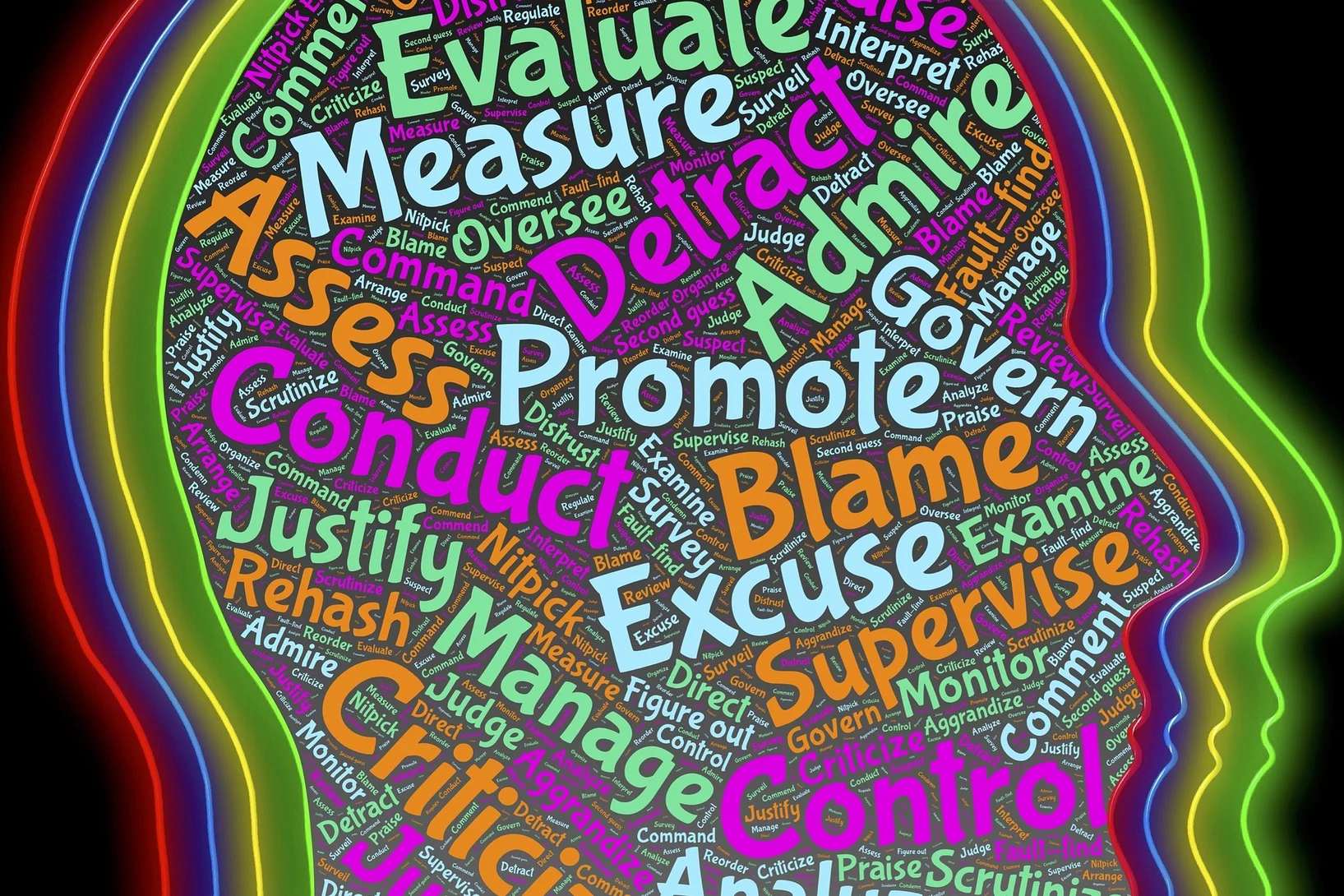News
Career Profile: Michał Studniarek, Research Team Manager at ABB Corporate Research Center
Before joining ABB Corporate Research Center, I completed my PhD on multifunctional spintronic interfaces at SOLEIL synchrotron and performed research on single molecule magnets at Xtreme beamline of SLS as a PSI-fellow postdoc.
Scientist careers: Kaoutar Radi, participant of CONNECT Round 5, now Technical Project Manager in the development team of Hilti's Diamond Business Unit
The CONNECT program fosters exchange between highly qualified and ambitious female scientists and role models working in industry. In addition to direct matches between program participants and partner companies, the program encourages scientists to explore and pursue career options beyond academia. Every year, ca. 35 scientists and 3-4 partner companies, plus the federal administration, sponsors, universities of applied sciences and startups benefit from the program. In today's post, meet Kaoutar Radi who participated in CONNECT Round 5 and got encouraged to continue her career at Hilti, one of our partner companies. She tells us about her journey from wanting to explore potential career paths, to the connection she felt during the visit at Hilti, and her current role as technical project manager in the development team at Hilti's Diamond Business Unit.
Scientist careers: Weronika Ofierska, participant of CONNECT Round 4, now Lab Specialist at the Gübelin Gem Lab
The CONNECT program fosters exchange between highly qualified and ambitious female scientists and role models working in industry. In addition to direct matches between program participants and partner companies, the program encourages scientists to explore and pursue career options beyond academia. Every year, ca. 35 scientists and 3-4 partner companies, plus the federal administration, sponsors, universities of applied sciences and startups benefit from the program. In today's post, meet Weronika Ofierska who participated in CONNECT Round 4 and got encouraged to move to industry thanks to the program. She tells us about her journey from wanting to gain insights to make an informed decision on her future career, to the ‘girlhood’ and support she experienced, and what she is working on now.
Career Perspectives at our Partners: Maria-Alexandra Paun, Federal Office of Communications
Our partners are interested in attracting PSI's early career researchers, and we introduce scientists working at partner companies to showcase career perspectives. In today's post, meet Maria-Alexandra Paun, who did her PhD in Microelectronics and Microsystems at EPFL and is currently working at the Federal Office of Communications. She tells us how she managed the transition away from academia, and what she is working on now.
What PSIs early career researchers are looking for in their job search
PSI’s PhD and postdoc association (PPA) collected voices what our early career researchers are looking for when they search for jobs, and presented these at the first PSI & Park Innovaare Career Fair in March 2024. We are sharing a summary on our career blog to make it easier for employers to approach our talents with arguments that are relevant to them.
‘What can I do?’ vs ‘What do I want to do?’
‘Which jobs can I apply for with my background in X, or which companies are looking for this background?’ is a question that comes up in career counseling every now and then. Clearly, having to find a job that fits is a big choice. What makes it even harder, is that many competencies that are important requirements for a future job are just taken for granted in academia.
Do you want to use the summer break to advance your career?
Are you wondering what you can do over the summer to enhance your career prospects and improve your employability? Look no further, this blog post has some ideas to spark your curiosity, motivation and enthusiasm, and advance your career at the same time:
Scientist careers at our partner companies: Sara Da Ros, Head Strategic Supply Chain Projects at Siegfried
Our partner companies are interested in attracting PSI's early career researchers, and we introduce scientists working at partner companies to showcase career perspectives. In today's post, meet Sara Da Ros who did her PhD in organic chemistry at ETHZ and is currently Head of Strategic Supply Chain Projects at Siegfried. She tells us how she managed the transition away from academia, and what she is working on now.
Competencies our partner companies are looking for
How can you prepare for your next career step already during your PhD or postdoc time? Which skills are necessary and sought-after, and can you increase your chances by signing up for a relevant course? We asked the partner companies and collaborators of the PSI Career Center and the CONNECT program what they are looking for – and wrote this compilation based on inputs by ABB, APP, Axpo, Bain, cross-ING, Dectris, DETEC, Hilti, McKinsey, Sensirion, VDL and ZEISS
Your questions about career counseling
‘Can you share examples of the most important questions and answers from counseling sessions? What is it that you discuss with people? What if I find it hard to formulate my question? What can I expect from a counseling session? And what will I talk to you for an entire hour?’
Were you wondering about these, but have not yet found a good occasion to ask? – Well, thanks to others who did, you will find out in this blog post:
Excited about our first Joint PSI and Park Innovaare Career Fair, but not sure how to talk to company representatives?
We are all excited about our first Joint PSI and Park Innovaare Career Fair, and looking forward to lots of fruitful interactions between companies and early career researchers. We cannot wait to hear your success stories. But how do you start the conversation?
PSI alumni at our partner companies: Dionysios Chionis, Axpo
The PSI Career Blog presents PSI alumni and their career paths, as well as the daily work and career perspectives at our partner companies. Today we get both combined: Dionysos Chionis joined Axpo after his PhD at PSI, and provides an insight into his current position as head of the Nuclear Physics Group at Axpo Group.
PSI alumni at our partner companies: Dr. Christian Bährle, ZEISS
The PSI Career Blog presents PSI alumni and their career paths, as well as the daily work and career perspectives at our partner companies. Today we get both combined: Christian Bährle worked in different places after his time at PSI, and provides an insight into his current position at ZEISS.
Why is career planning so hard when things happen to fall in place for everyone else?
‘It seemed so easy for all of you, but I have no idea where I want to go – how did you know?’ was a frequent comment after our Nonlinear Career Paths event in October. Why do careers seem so hard when it comes to deciding on the next step, when in retrospect, they seem to just have happened? ‘I met this person, and then one thing led to the other, and now I have my dream job’ or ‘I never imagined myself in this place but X happened, and got me interested in Y, so now I am here’, are frequent answers when asking people how they got to the position where they are today. Do you have to be lucky, or can you plan a career?
How artificial intelligence would have written my motivation letter
How can we use artificial intelligence in the application process? I gave it a try and had artificial intelligence write a motivation letter for my current position with the information that I am a physicist and a coach. Here is what came back (interestingly, the content and structure are different when asking in English vs German, so it is worth to read both translations):
Scientist careers at our partner companies: Johanna Mehl, McKinsey & Company
Our partner companies are interested in attracting PSI's early career researchers, and we introduce scientists working at partner companies to showcase career perspectives. In today's post, meet Johanna Mehl, who did her PhD in biophysics at ETHZ and is currently an associate at McKinsey & Company. She tells us how she managed the transition away from academia, and what she is working on now.
What is it that led you to give up your professorship?
This question showed up in my LinkedIn inbox a few days ago, out of the blue, asked by a person I had collaborated with a decade ago and not had any contact since. Clearly, my decision to leave academia made an impact. But what were the reasons, anyway?
PSI Alumni Careers: Kathrin Ebner – from PhD at ENE to Risk Assessor in Munich Re’s Emerging Green Tech Solutions Team
The PSI Career Blog features PSI alumni and their career paths to highlight the versatility of the PSI community, and inspire the young generation. Today with Kathrin Ebner, who is telling us about her journey from a PhD at PSI to being a risk assessor at Munich Re.
Myths and prejudices related to your job search
‘Only those who are not successful in academia move to industry’, or ‘when I move to industry, I will earn a lot, but others tell me what to do, and I cannot develop myself any further’ on the one side, and ‘those scientists life in their own world, will we even be able to communicate with them?’ on the other – these are some myths and prejudices challenging those looking for their next job. How can you deal with these?
PSI Alumni Careers: Gesara Bimashofer – from PhD at NUM to Consultant at APP Unternehmensberatung AG
The PSI Career Blog features PSI alumni and their career paths to highlight the versatility of the PSI community, and inspire the young generation. Today with Gesara Bimashofer, who is telling us about her journey from a PhD at PSI to being a consultant at APP Unternehmensberatung AG in Bern.
PSI Alumni Careers: Eric Wasson Burns – from PhD at NUM to Associate in the Climate Team at Deep Science Ventures
The PSI Career Blog features PSI alumni and their career paths to highlight the versatility of the PSI community, and inspire the young generation. Today with Eric Wasson Burns, who is telling us about his PhD experience at PSI, and the transition to his current job as associate in the climate team of Deep Science Ventures.
Will I have to start all over again when moving away from academia?
‘If I change to industry or the public administration, does that mean I have to start all over again?’ is a question that is often asked in career counseling sessions one way or another. Clearly, after having invested so much time and energy in your education and your research project, the last thing you would want is starting from scratch. But do you really have to start all over again when you change career direction? And what is so bad about a fresh start?
From the outside, you see a successful scientist – but what is behind?
Do you sometimes get frustrated when you scroll through social media and see the new positions your contacts are about to start and the grants or prizes they are awarded? Do others’ success stories make you feel small and incapable? Is it true that everyone else is super-successful while you are struggling, or what is behind the others’ success?
PSI Alumni Careers: Marco Taddei – from Postdoctoral Researcher at ENE to Associate Professor at the University of Pisa, Italy
The PSI Career Blog features PSI alumni and their career paths to highlight the versatility of the PSI community, and inspire the young generation. Today with Marco Taddei, who is telling us about his postdoc experience at PSI, and the transition to his current job as associate professor at the University of Pisa, Italy.
From ‘should’ and ‘have to’ to ‘being excited about’ and ‘looking forward to’
Happy New Year! I hope you are having a good start to 2023, and that this will be an exciting, successful and happy year for you. At this time of the year, many of us like to think about everything we have to do, or everything we should do better than last year. But is there a better approach?
How to be happier at work
Do you know this feeling of sitting in the lab, totally bored because you are just doing the same measurement for the umpteenth time, thinking that nobody needs to study for 5+ years to do what you are doing right now? What about the feeling of having put a huge amount of effort into your paper writing, working late to get everything ready in time – only to get it back all red from your supervisor’s corrections? Or having a reviewer (who clearly doesn’t understand your study) state it is not new or original enough, or not getting any response for ages? Add to this an instrument that breaks down just before your last measurement, a PC that crashes just before the model finished calculating, and you have a great recipe to frustrate a scientist. This blog post helps you get rid of the frustration and be happier at and with your work.
What happens during career counseling?
‘What are you going to do with me now?’ or ‘I didn’t really know what to expect’ are sentences I often hear at the beginning of a counseling session. Not knowing what will happen can make us quite nervous, and for some this nervousness is even a reason to say ‘my questions are not that important, I don’t need counseling’. I congratulate each and every one of you who had the courage to come to a counseling session. It does take courage to expose yourself, not knowing what will come. For those who were secretly wondering what happens behind closed doors in my counseling room, let’s have a look at what career counseling is about.
You must be crazy! Why would someone with your track record leave science?
You are good at your job, you are successful, you have achieved what most of us are aiming for, you are inspiring the new generation. How can you think about doing something else? What would the community do without you? Who will take care of the lab?
People having opinions about our career choices is inevitable. How do you deal with it? And what happens when you decide to follow a path that others think is crazy?
Self-analysis - fascinating instrument or tool by the devil?
While we ask ourselves every now and then whether we are still happy in our private lives, we often hesitate to do the same in our professional lives. Why this should be necessary?
Taking the time to assess your own professional situation is very valuable. Especially because nowadays a career is almost never straightforward, it is often helpful to be aware of certain points.
How I tackled post-PhD imposter syndrome
Kelsey Inouye's job search has given her panic attacks and dented her self-esteem. But she has learned to deal with rejection. This blog post originally appeared as such on Nature's website and was adapted almost 1:1 from there. What Kelsey learned from her time after her PhD confirms what is taught in career counselling sessions at PSI: Focusing only on finding a job ends up being counterproductive.





